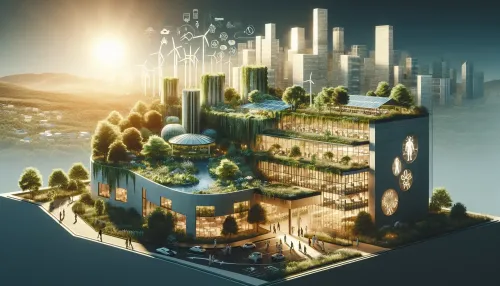Rediscovering Horticultural Therapy: Cultivating Mindfulness Through Gardening

Horticultural therapy, a practice that harnesses the restorative powers of nature for therapeutic purposes, has a rich history dating back to ancient civilizations. Civilizations such as the Egyptians, Greeks, and Romans recognized the healing potential of gardens and green spaces. However, it was not until the 19th and 20th centuries that horticultural therapy gained recognition as a formal therapeutic modality. During the two World Wars, healthcare professionals observed the positive impact of gardening on the mental health of injured soldiers, leading to the formalization and widespread adoption of horticultural therapy.
The Historical Roots of Horticultural Therapy
The modern concept of horticultural therapy emerged in the 1940s, pioneered by medical professionals who acknowledged the physical, emotional, and mental health benefits achieved through structured gardening activities. In 1973, the American Horticultural Therapy Association (AHTA) was founded, providing a formal platform for research, education, and advocacy in the field of horticultural therapy. Today, horticultural therapy has evolved into a recognized holistic practice that is integrated into various healthcare and wellness settings to promote overall well-being.
Gardening activities offer a unique avenue for individuals to connect with nature, promoting mindfulness and emotional equilibrium. Engaging in planting, nurturing, and tending to plants brings individuals into direct contact with the natural world, fostering an appreciation for life cycles and the interconnectedness of living organisms. This hands-on interaction with nature's processes instills a sense of purpose and responsibility while nurturing a deep sense of connection with the environment.
How Gardening Activities Foster Mindfulness
Furthermore, gardening activities encourage individuals to be fully present in the moment, focusing their attention on the task at hand. This heightened awareness cultivates mindfulness, allowing individuals to let go of stressors, worries, and anxieties as they immerse themselves in the therapeutic rhythms of gardening. Studies have shown that spending time in green spaces and engaging in gardening can alleviate symptoms of anxiety and depression while promoting a sense of calm and tranquility.
Recognizing the transformative power of mindfulness and its profound impact on overall wellness. Gardening activities serve as a medium through which individuals can embrace mindfulness, aligning with Peppino Blog's mission to empower readers with actionable strategies for holistic well-being.
Horticultural therapy offers significant cognitive benefits for individuals facing a wide range of psychological challenges. The structured nature of gardening activities provides a supportive environment for cognitive stimulation and rehabilitation. For individuals struggling with cognitive impairments or neurodevelopmental disorders, engaging in horticultural therapy can enhance attention span, memory retention, and executive functioning skills.
Moreover, the sensory experiences inherent in gardening stimulate neural pathways, contributing to sensory integration and improved cognitive processing. The tactile sensations, visual stimuli, and fragrant aromas encountered during horticultural activities can aid in grounding individuals within their immediate environment while promoting cognitive engagement.
Related Article: The Healing Power of Nature: Embracing Ecotherapy for Well-Being
Cognitive Benefits of Horticultural Therapy
Delivering informative content that addresses diverse facets of mental well-being. Understanding the cognitive benefits of horticultural therapy aligns with Peppino Blog's commitment to advocating for inclusive approaches to mental health support.
The versatility of horticultural therapy allows for its seamless integration into diverse wellness settings, amplifying its potential to enhance mental health outcomes across populations. From community gardens and residential care facilities to psychiatric hospitals and rehabilitation centers, horticultural therapy can be adapted to suit varying needs and preferences.
Incorporating horticultural therapy within wellness settings fosters a sense of community and collaboration among participants while providing a structured framework for goal-oriented activities. This fosters a supportive social environment that encourages interpersonal connections and mutual support - essential elements for fostering resilient mental health.
Implementing Horticultural Therapy in Wellness Settings
Understanding the importance of personalized approaches to mental health support within different wellness contexts. The applicability of horticultural therapy across diverse wellness settings aligns with Peppino Blog's vision for promoting accessible avenues to mental well-being across various demographics.
In conclusion, horticultural therapy stands as an enduring testament to the transformative power of nature-based interventions in promoting mindfulness, emotional balance, cognitive stimulation, and community well-being regarding mental health. As we honor its historical roots while embracing its contemporary applications, we are poised to harness horticultural therapy's therapeutic potential for continued holistic wellness.
Frequently Asked Questions
Horticultural therapy is a therapeutic practice that utilizes the restorative powers of nature, particularly gardening, to enhance physical, emotional, and mental well-being. It has historical roots dating back to ancient civilizations and has evolved into a recognized holistic practice integrated into various healthcare settings.
Gardening promotes mindfulness by encouraging individuals to engage fully in the present moment. Through planting and nurturing plants, individuals connect with nature, which helps alleviate stress and anxiety. This hands-on interaction fosters a sense of purpose and responsibility, enhancing emotional balance and overall well-being.
Individuals facing various psychological challenges can benefit from horticultural therapy. It provides cognitive stimulation and rehabilitation for those with cognitive impairments or neurodevelopmental disorders. Additionally, it fosters community engagement and support among participants, making it suitable for diverse wellness settings.
Check Out These Related Articles

Nordic Nexus: Integrating Nature's Influence in Mental Well-Being Strategies

Renewing Wellness Spaces: Eco-Friendly Design Innovations in Healthcare Facilities

Cultivating Well-Being: The Intersection of Holistic Health and Modern Agriculture Practices
